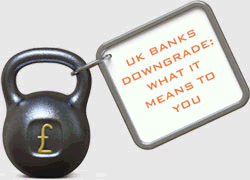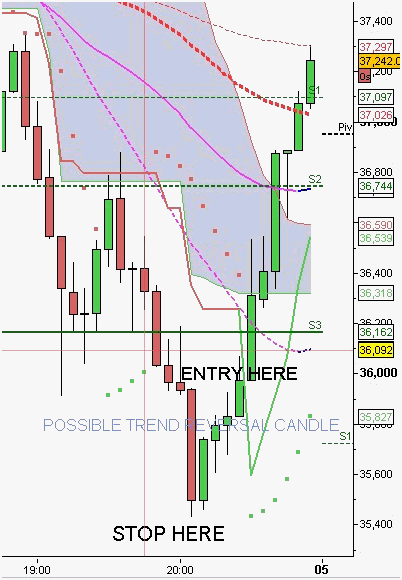The Cyprus Crisis: What Next?
For many onlookers in the UK, the eurozone debt crisis may seem quite curious, with Ireland, Portugal, Spain, Greece and now Cyprus all having hit the buffers since the onset of the global credit crisis.
It is a situation – which in the UK has been resolved, so far, by printing more money – that continues to play havoc not only with the eurozone, but also the global economy. Although certainly not the biggest eurozone economy, the addition of Cyprus to the list of indebted, bailed-out economies is of importance.
Indeed, as one of the recent entrants to the euro – joining in 2008 – the situation seems more serious. One of the enduring images of the Cyprus financial crisis last year was that of one Cypriot threatening to bulldoze his way into a local bank in order to gain access to his savings. But how did it come to this?
The Cyprus story begins with the onset of the eurozone debt crisis, which readers will be familiar with. The most recent flare-up, however, is very much linked to the Greek debt crisis. The second round of haircuts for Greek national debt was the trigger that set in motion a train of events leading to this year’s €10bn bail-out package.
Cyprus had been very successful in attracting money to its banking sector and had drawn a number of Russian clients using it as an offshore tax haven. However, Cypriot banks were heavily exposed to Greek debt and, therefore, affected by further yield reductions last year, as part of that eurozone member’s own bailout conditions.
This move – combined with a weakened economy facing recession – prompted the Cyprus government to approach foreign investors for more than €1bn to prop up the
Cyprus Popular Bank. The Cypriot economy was already under pressure thanks to the impact of the credit crisis a few years earlier.
One of the more contentious issues had been a levy on deposits below €100,000, which had prompted long queues outside banks
It had been downgraded by several ratings agencies and had also seen a disastrous explosion at its Evangelos Florakis naval base, which also caused much damage to its main power station.
A $2.5bn Russian loan had been thought enough to plug a funding gap but after being downgraded to junk status by ratings agencies – increasing the cost of borrowing – and forcing Cyprus to seek help last June. Europe’s financial heavyweights moved in, aiming to prevent the eurozone from collapsing. Again. After a fraught negotiating period, a €10bn deal was agreed with the Troika – the European Commission, International Monetary Fund and European Central Bank – but not before scenes seen in March unfolded.
Mounting frustration One of the more contentious issues had been a levy on deposits below €100,000, which had prompted long queues outside banks after withdrawal limits were imposed on cash machines. This was later dropped after strong protests. Levies above €100,000 remained. European paymasters did not want to be responsible for safeguarding the deposits of rich Russians.
Another condition of the European bail-out was the restructuring of the country’s two largest banks – Laiki and Bank of Cyprus – which will involve losses for both junior and senior bondholders. The banking sector is likely to face further challenges as it is ‘downsized’ to an EU average by 2018.
Hedge fund veteran George Soros who made £1bn betting against sterling in 1992 believes the deal has more insidious ramifications for weaker banks throughout Europe. ‘What happened in Cyprus undermined the business model of European banks, which relies heavily on deposits,’ Soros claimed in a speech earlier this month. ‘Until now the authorities went out of their way to protect depositors. Cyprus has changed that. Attention is focused not just on the impact of the rescue on Cyprus but the impact on the wider banking system. Banks will have to pay risk premiums that will fall more heavily on weaker banks and the banks of
weaker countries.’
Taking advantage
So, how else can investors take advantage of the situation?
‘Retail investors have tried to short this market repeatedly over the past six months with limited success, and the old adage about not fighting trends rings true,’ says Matt Basi, head of UK sales trading at CMC Markets.
‘We’ve seen clients with long positions in single stocks taking short index positions to try and manage their risk, but the fact remains that buying dips in this market has been the most successful ploy for some time now.’
The effort made by authorities to keep Cyprus – and indeed the other embattled euro bloc members – in the eurozone suggests that the single currency is safe, for now
‘Of course, that’s not to say a sharp correction isn’t just around the corner – just that blindly selling the equity markets as they tick relentlessly higher has proved an extremely expensive stance in 2013 so far, and that caution is advised.’
The Cyprus Stock Exchange General Index remains at depressed levels: over one year it is down by 60% (to 11 April 2013). Yet, with further tough times ahead and as it implements austerity measures, it would make a brave investor to long the local stock market. The short outlook seems just as unpredictable, as the bailout acted to arrest the slide and reduce volatility.
‘While shares as a whole ought to be biased higher if the European Central Bank were to begin cutting rates, the constantly lingering threat of another unexpected near-term jump in tail risk – perhaps linked to political uncertainty in Italy this time – argues for the primary of flexibility,’ says Ilya Spivak, currency strategist at DailyFX.
One of the main ways investors can take advantage of the Cyprus situation is by trading the euro. The deal removed the threat of imminent bankruptcy and statements by Cypriot officials have also reaffirmed its commitment to euro membership.
‘Cyprus makes up such a small proportion of eurozone GDP that the demise of a couple of their financial institutions would, taken as single events, have raised a few eyebrows and knocked a few points off the major indices,’ explains Basi of CMC Markets.
‘It was their attachment to the eurozone and the necessity to come up with a desperate bailout package that sparked the panic – a panic that would have been unnecessary if the eurozone, or Cyprus themselves, were ready to just cut the island loose.’
The effort made by authorities to keep Cyprus – and indeed the other embattled euro bloc members – in the eurozone suggests that the single currency is safe, for now. Indeed, the country’s small size may even have helped keep it in the eurozone.
‘The likelihood of any eurozone member state exiting the currency bloc remains virtually nil,’ says Ilya Spivak
‘This applies to Cyprus no less than it does to a far larger country, such as Spain for example, because the critical concern is that of precedent for the region rather than any individual member state per se. Close Brothers Asset Management’s head of direct global investments Chris Bailey adds: ‘Investors need to embrace any weakness associated with uncertainty on the perspective that the ECB/EU authorities will support the system.’
CMC’s Basi adds: ‘While the US Federal Reserve continues to pump liquidity into financial markets, investor risk appetite endures. Markets continue to make new highs in spite of Cyprus, as reasonable equity valuations and cheap money encourage bulls to push prices higher.
‘That said, the failure of the euro to climb higher with risk assets suggests FX traders and multi-asset funds remain more cautious when it comes to the single currency.’
But despite the success of the bailout, questions of a Cyprus exit have still not been ruled out. This is partly seen as a reflection of the continuing volatility facing the global economy and the troubles faced by fellow bloc members.
Portugal was forced to find additional savings last month after a court found some of its proposals unconstitutional.
George Soros has even questioned the German-led push for austerity in heavilyindebted countries, which he claims does not work, arguing for the issuance of eurobonds to solve the bloc’s problems.
‘It’s reasonable to expect that Cyprus eventually leaves the eurozone,’ says John Hardy, head of FX strategy at Saxo Bank.
‘But the time scale is certainly unknown and the situation could stretch out for a considerable period of time.’ Hardy adds: ‘A Greek exit first would make Cyprus a done deal, but Greece has surprisingly hung in there so far.’
Potential for recovery
Confidence in the eurozone as a whole is likely to figure highly on investors agenda and despite the latest efforts to secure the single currency, it appears investors remain cautious about adding to positions.
Whilst the US Federal Reserve continues to pump liquidity into financial markets, investor risk appetite endures. ‘Markets continue to make new highs in spite of Cyprus, as reasonable equity valuations and cheap money encourage bulls to push prices higher,’ adds Matt Basi. ‘That said, the failure of the euro to climb higher with risk assets suggests FX traders and multi-asset funds remain more cautious when it comes to the single currency.’


